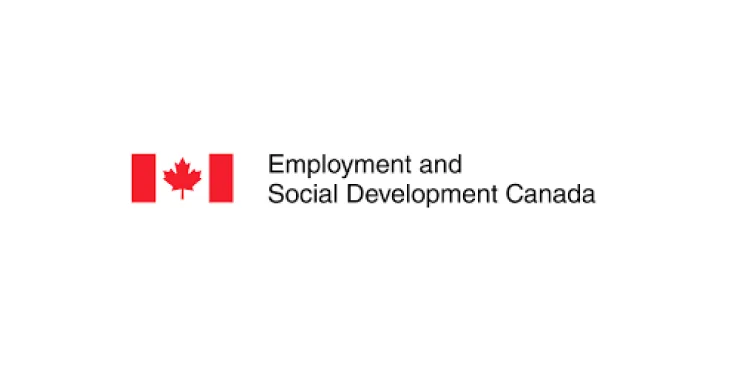
I want to resign from my job. Is giving my employer two weeks’ notice sufficient?
If you quit a job voluntarily, this affects your legal rights to things like employment insurance benefits and compensation you are owed. Learn your rights if you quit, and steps to protect yourself.
More on quitting your job
At this recorded webinar, employment lawyers Richard Johnson and Aliya Virani answer common questions about your legal rights on quitting your job.
What you should know
A key factor affecting your rights when you’re leaving a job is your employment contract. It may include terms that deal with how your employment can be ended. (Note there’s always an employment contract between a worker and an employer, even if nothing is in writing.)
Many employment contracts set out how much notice you must give to the employer if you intend to quit.
Make sure you’re aware of any term in your contract that might limit your future activities. For example, a non-compete clause that tries to limit your ability to take a similar job. Or a non-solicitation clause that tries to prevent you from recruiting customers from your current job. Terms like these may or may not be enforceable — the more restrictive they are, the less courts are willing to enforce them. Still, you want to be clear-eyed about whether you are risking a legal battle.
The law presumes a non-compete clause to be unenforceable
The law actually presumes a non-compete clause to be unenforceable. The burden is on the employer to prove the restriction is needed to protect a real business interest of theirs. As well, the employer has to show the restriction is reasonable in terms of its time period, geographic area covered, nature of activities prohibited, and overall fairness, given your position with the company. The restrictions always need to be clear, certain, and not vague.
Most employers consider it courteous for workers to give notice before resigning. This ensures they have enough time to adjust to your departure and reassign any work they relied on you to do.
Under BC’s main employment law, there is no legal requirement for a worker to give their employer notice before quitting. But under common law, if you quit your job without providing proper notice, and your employer suffers losses as a result, you may be liable to the employer for those losses. So, generally, it’s not a good idea to walk off the job and quit without notice.
The amount of notice to give
Your employment contract may set out how much notice you need to provide.
If not, the amount of notice must be reasonable in the circumstances. The factors in play include the duties and responsibilities you have, how long you’ve been in the job, and the time it would reasonably take the employer to have others handle your work or to hire a replacement.
For more junior workers, two weeks’ notice is common. For workers with a lot of responsibility, four weeks’ notice is more typical. However, these are only general guidelines.
Giving plenty of notice is recommended if you want your employer to give you a good reference when you apply for a new job.
The way to give notice
The best way to tell your employer you quit is to give them a letter of resignation. To be effective, your resignation must be clear and have an end date. Your employer should have no doubt about your intention to quit. Uttering the words “I quit!” as part of an emotional outburst is not enough.
For more on preparing a letter of resignation, see below under step 5 of work out the problem.
When you tell your employer that you quit, your employer can accept or refuse your resignation.
If they accept, you’ll continue to earn your regular wage until your last day of work.
If your employer refuses (and says “take your things and go home, you’re done here”), they must pay you compensation. They must pay you for the amount of notice you have given. Or if your legal entitlement to notice on dismissal is a shorter period, they can pay you for that shorter period. (See our information on how much notice an employer needs to give.)
Regardless of whether you notify your employer ahead of time that you’re quitting, your employer must pay all wages owed to you through your last day of work. This includes annual vacation pay, statutory holiday pay, and overtime.
If you’re covered by employment standards law, your employer must pay your outstanding wages within six days of your last day of work.
If you quit your job, you will usually not be eligible to receive employment insurance (EI) benefits. The exception to this rule is if you had no other reasonable choice except to leave your job. Some examples are:
you experienced sexual or other harassment
you experienced discrimination
your working conditions were unsafe
you needed to move with a spouse or dependent child to another place of residence
your employer made major changes to your work duties or pay
When you apply for EI, you will have to describe your situation and explain what steps you took to fix the problem before you quit. If you convince EI you had no other reasonable choice but to quit, you may be eligible to receive EI benefits. See the federal government’s website for more on eligibility for EI if you quit.
Sometimes a worker who quits their job doesn’t truly leave the job voluntarily. They may be reacting to a form of veiled dismissal. Instead of saying “you’re fired!”, an employer might do something more subtle that causes you to feel like you have no reasonable choice but to quit. It might be an unexpected demotion. Or a significant reduction in hours or pay. If so, you may have experienced a constructive dismissal.
This applies when your employer does something that:
changes a key aspect of your employment in a major way, and
isn't something they're allowed to do under your employment contract, and
you don’t agree to or accept.
If you’ve been constructively dismissed, you have the same rights as someone who was fired without cause. That includes the right to notice (or pay instead). For more, see our information on when your job changes in a big way.
Work out the problem
If you haven’t quit your job yet, consider options to fix the problem. What is reasonable depends on your situation. For example, you might consider:
talking with your employer (we offer tips)
talking with a trusted colleague or union representative
asking for new duties or to work under a different manager
taking job-protected leave instead of quitting
It’s a good idea to make notes about how you tried to fix the problem and why it didn’t work.
If you leave your job and you want to get EI benefits, you must prove you had no other reasonable choice except to quit your job. See above, under what you should know.
A legal professional can help clarify where you stand, and what your options are. There are options for free or low-cost legal help.
Check the terms of your employment contract to make sure you meet any notice requirements on quitting your job. If you leave before the notice period has expired, your employer may be able to say that you breached your contract.
You can start looking for another job before you quit. If you don’t want your current employer to be contacted, indicate on your application that you’re applying “in confidence.” This way you can still list your current job as part of your employment history.
Don't quit until you've signed an offer letter elsewhere
If you are offered another job, you usually shouldn’t quit your current job until you’ve signed an offer letter. It’s a rude shock to have an offer revoked after you’ve already quit your current job!
To tell your employer you’re quitting, it’s best to prepare a letter. It doesn’t need to be overly detailed. It should fit on a single page and include:
a clear statement that you're going to resign
the date of your last day of work
your appreciation for what you have learned
an offer to help with the transition
If you're looking for inspiration, this article has some sample resignation letters.
Print out the letter and hand it to your employer in person. No matter how uncomfortable it is, doing so in person is the professional thing to do. If there’s no way you can speak to your boss in person, over the phone is the next best option.
Who can help

Employment Standards Branch
The BC government office that deals with complaints against employers.

Employment and Social Development Canada
Deals with complaints against employers in federally-regulated industries.

Access Pro Bono's Free Legal Advice
Volunteer lawyers provide 30 minutes of free legal advice to people with low or modest income.

Access Pro Bono’s Everyone Legal Clinic
Clinicians provide affordable fixed-fee services on a range of everyday legal problems.

Lawyer Referral Service
Helps you connect with a lawyer for a complimentary 15-minute consult to see if you want to hire them.

BC Legal Directory
Search for a lawyer by community or legal issue. From the Canadian Bar Association, BC Branch.

